Today, on World Music Day, paying tribute to the sarod maestro Pandit Rajeev Taranath who passed away on June 11.
“Love is worrying about someone or something,” the Hindustani music legend Rajeevji often said this about human relationships. Perhaps, this is also true of the love of his life—music. Rajeevji cared intensely for people. And he cared as passionately for achieving excellence in music. The precise turn of phrase in language, the right relish for food, a sharp and blinding insight into a poem, the unflinching expression of his cultural or political stances—he cared deeply about just everything in life.
No wonder that the illustrious writer and friend of over five decades, Chandrasekhar Kambar, was inspired by Rajeev’s musical quest in creating his prose-poem Chakori. In Kambar’s words, “Rajeev stands for everything that is magnificent and human. He becomes a part of our folklore. His contemporaneity is fused with something that transcends time.”
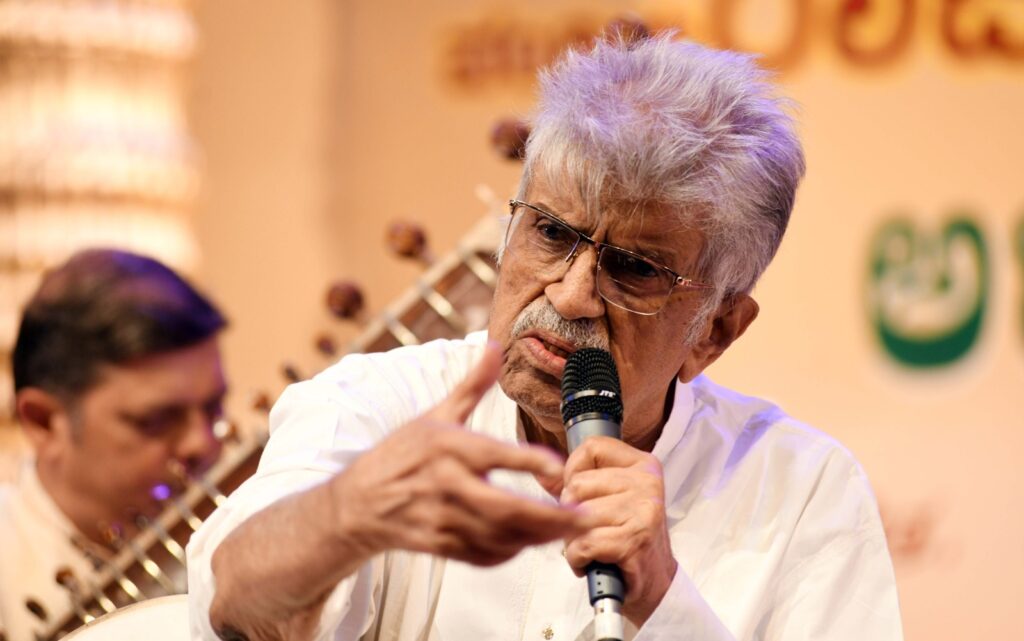
While Rajeev espoused modern and radical views in matters social and cultural, when it came to music, he described himself as a “classicist” at heart. This deep classical rigour at the core of his music is enriched by an intense emotionality. A proponent of the “Gurumukhi” learning, he was a leading exponent of the great Maihar-Allauddin school of music.
Looking back on his long and blazing career, he simply summed it up thus, “the music of Ustad Ali Akbar Khansaab flowed into me.” In fact, an eminent Indian music critic once described his music as the “Second Coming” of Khansaab. The purity of sound, excruciatingly beautiful evocation of melody, and the intricate engagement with rhythmic structures are the distinctive features of his playing.
Bridging literature and music
While Rajeev Taranath’s musical journey has inspired great literary figures like Kambar, the maestro’s literary achievements are also of the highest order. An important literary critic of the 60s through 70s, his work straddles both English and Kannada writing. He is the first Indian to be referenced in the famous Arden edition of Shakespeare. His writings on Indian English writers like R K Narayan, Raja Rao, Nissim Ezekiel and others remain seminal even today. Similarly, he is foremost among those who ushered in modernism in Kannada literature.
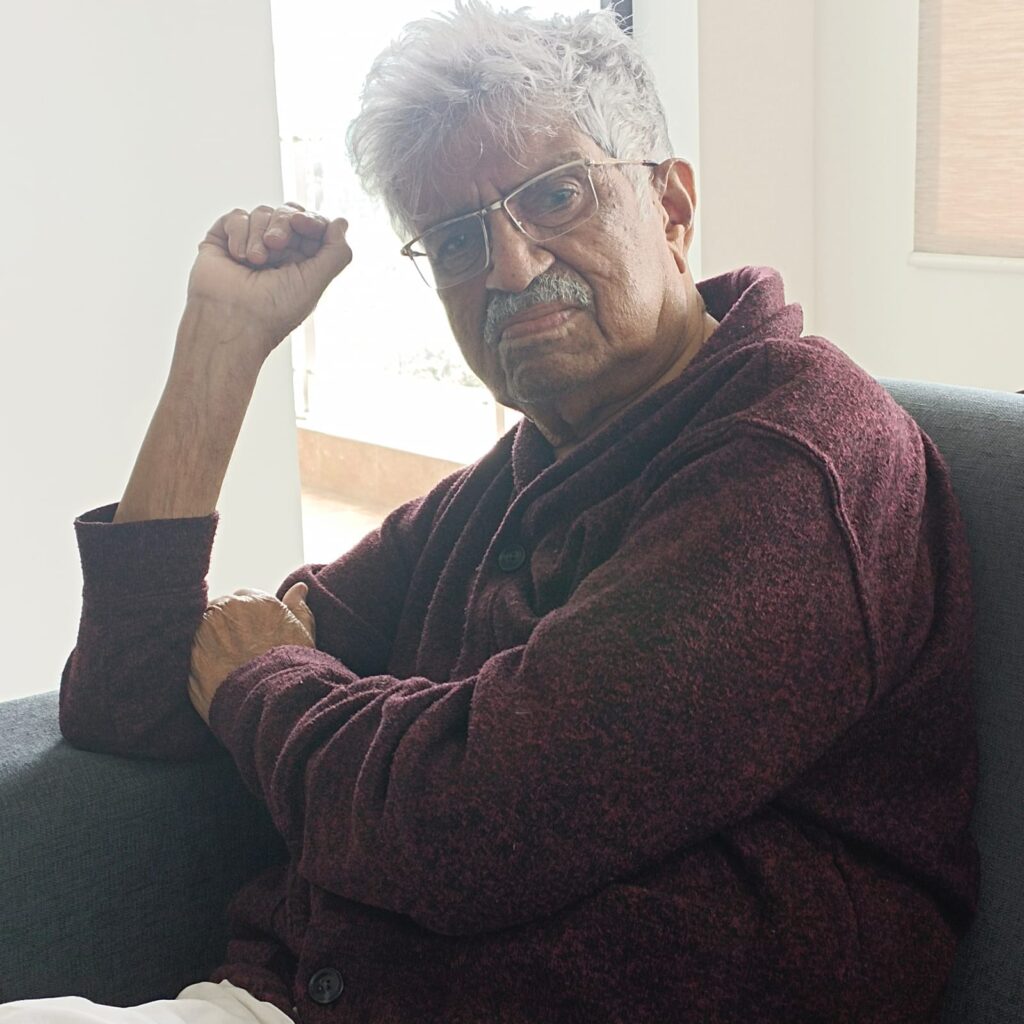
To him goes the credit of discovering stalwart writers like U R Anantha Murthy and Chandrasekhar Kambar. A polyglot who spoke seven languages with ease and finesse, he was deeply particular about the tones and rhythms of language. While his range of interests and knowledge included anything beginning from cooking to cricket, from German Generals of WWII to training golden retrievers, or even motorcycles to TV soaps, the ruling passion was always music. Thus, even on the hospital bed, the maestro sang his pain. He listened to his favorite music. As he slept barely conscious in the ICU, his fingers kept the beat to the magnificent Yaman Kalyan he had played some time back.
A life-altering moment
In 1952, as a young man of nineteen, Rajeev Taranath experienced a life-altering moment. Though his illustrious father, Pandit Taranath (a doctor, musician and social thinker) had started him off on tabla and vocal music, Rajeev was all poised to pursue a literary career or enter the administrative services. All this changed utterly when he heard Ustad Ali Akbar Khan’s sarod in the Town Hall, Bangalore.
“Khan Saheb’s sarod soared to magnificent heights like a golden eagle. The bald Buddha-like figure left me mesmerized. A burning desire to seek him out, to learn from him, and to re-create those magical sounds on the sarod–these were the thoughts that possessed me. It was a moment of ‘epiphany’,” he reminisced. All through those arduous years in Calcutta, when he struggled for a meal and a roof above his head, he stayed with that sublime sound and mastered the difficult instrument.
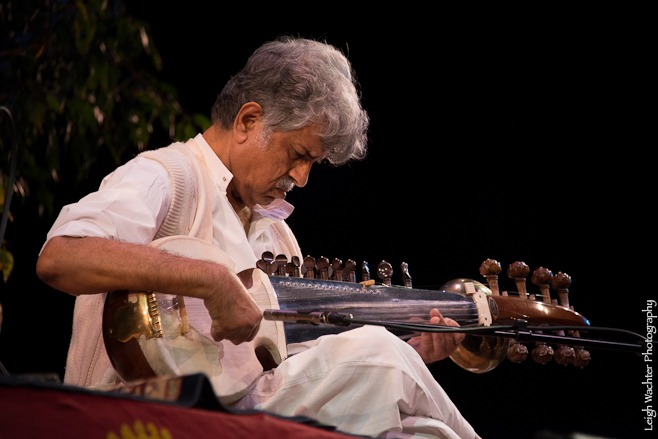
Meanwhile, a curious circumstance drew Rajeev back to literature. The well-known professor of English C D Narasimiah wrote to Khansaheb requesting him to send Rajeev to do his masters at the University of Mysore. What began as a short-term plan turned into a long and illustrious literary career as critic and cultural thinker.
Apart from being a Professor at the CIEFL (currently EFLU) in Hyderabad for a while or working at the Film Institute in Poona earlier, he held a series of academic positions until one of the trinity of his gurus (Ustad Ali Akbar Khan, Pt Ravishankar and Annapurna Devi) Ravishankar made him give up the teaching career and give all of himself to music at the age of 56. Since Rajeev Taranath had been playing and performing even through these years as an English Professor and critic, the transition was not too difficult. From there on, until the ripe age of 92, he performed and taught music to students from different parts of the world.
Fame, awards, recognition across the globe followed. Rajeev received the highest national honors like the Padmashree (2019), Sangeet Natak Akademi award, Chowdiah award and several others. Among the many “firsts” in his musical career was being the first Indian to have performed at the famous Sydney Opera House in Australia. In addition, including the UK, USA, France, Switzerland, Dubai and all over India, he played at the most prestigious venues.
He also taught music in eminent institutions like the California Institute Arts (CALARTS, LA). Besides, committed to teaching the music of his gharana to students from India and abroad, he had even worked on the teaching techniques of this gharana as a Ford Foundation scholar.
Music lives on
This multifaceted genius, who walked tall among us, had a hundred other feathers in his cap. For instance, Rajeev’s “affair with film music” as he called it tongue in cheek, was indeed a major intervention in Indian Cinema. It was often a case of genius meeting a musical genius. Kanchana Seetha and Pokkuveyil with Aravindan or Kadavu with Vasudevan Nair, and in Kannada, the path-breaking Samskara and Shringaramasa with Pattabhirama Reddy and the award-winning Pallavi with Lankesh—each film he directed music for was a rare cinematic experiment.
Talking about the making of music for Pokkuveyil, he described, “usually it is the logic of the visual that structures music in films. But Pt Hariprasad Chaurasia and I did the music first. The slow and vivid breakdown of the protagonist’s mind follows the logic of music here.” Befittingly, in 2020, he received the Swaralaya award in Kerala presented by another cultural icon Adoor Gopalakrishnan.
Rajeev Taranath’s loss will be felt by his admirers, friends and disciples the world over. But he will still live in the hearts of all music lovers and the fingers of his many disciples.

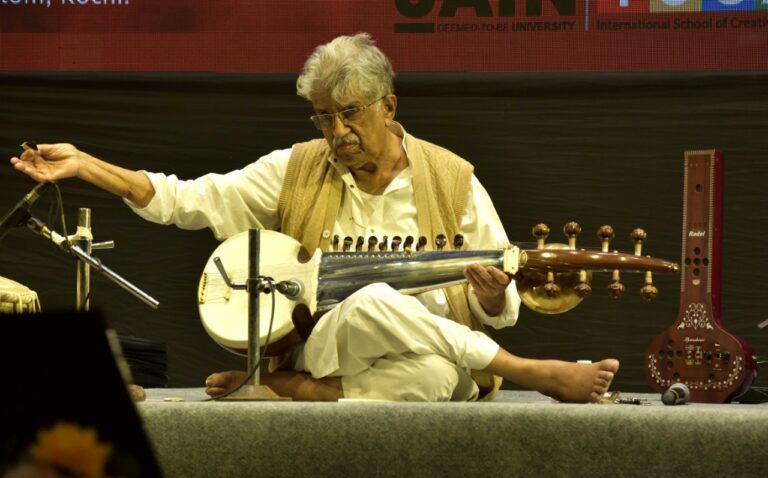
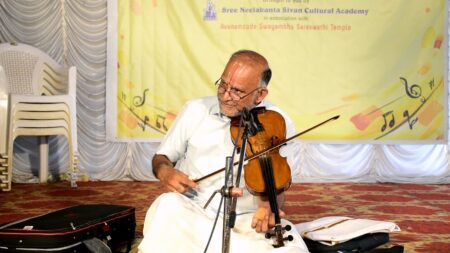
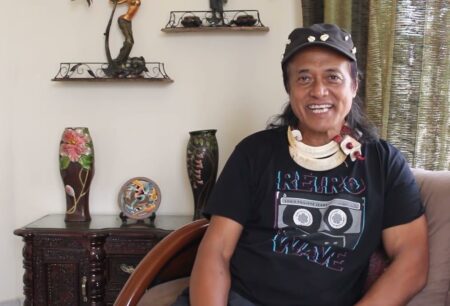
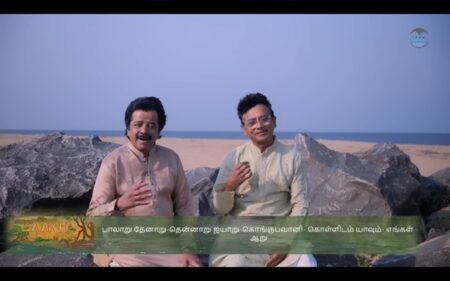
6 Comments
Excellent.This is what Rajeev Taranath ji was.A true picture of him.Very well done
Brilliantly written article. Captures various aspects of a great personality who we lost rather suddenly.
Resounding tribute by a peerless protege to a USTAD. AND MAHAMAHOPADHYAYA.
A matchless blend of an erudite literary scholar, peerless Sarodist and humanist.
Thank you Krishna.
– For the well wrought summation of the life and achievements of a Great Teacher and Artist .
Pandit Rajeev Taranath
Is a name that evokes love reverence and admiration, and will always remain an abiding influence in the lives he touched.
“I have spread my dreams under your feet; Tread softly because you tread on my dreams.” Pandit Rajeev Taranath ji would quote that line from the Yeats poem He Wishes for the Cloths of Heaven”. Was there a recognition of his true dreams?